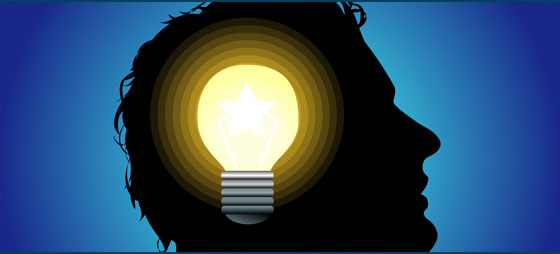 Nov 14, 2024
Nov 14, 2024


الشعب البحري - قطعة 8 - شارع 25 - مطعم شلاويط - مبنى دانا بلازا - الطابق الثاني

 Dec 12, 2019
Dec 12, 2019
الادراك ( الوعي) العالي
غالبًا ما يستخدم المصطلح " الوعي او الوجدان العالي" من قِبل الأشخاص ذوي التفكير الروحاني وذلك لوصف الحالات الذهنية المهمة التي يصعب الوصول إليها.
يتحدث جميع الحكماء سواء من الهندوس والرهبان المسيح والبوذ الزاهدون عن الوصول إلى لحظات من "الوعي العالي" - من خلال التأمل او من خلال الترانيم أو الصيام أو الحج.
لسوء الحظ ، فإن الطريقة التي يناقش بها هؤلاء الأشخاص الروحانيون حالات الوعي العالي بانهم لديهم ميل لوضع الكثير من الأنماط العلمانية على حافة الهاوية. من الممكن أن يبدو كل شيء مبهم بشكل جنوني،ركيك ، حساس ومزعج. اذا ما مقصد زعماء الطوائف الدينيه في الحقيقه ؟
نحن نتعاطف بشدة مع مثل هذه الإحباطات ، وليس بطبيعتها التي تنجذب بشكل خاص إلى الغامض . ومع ذلك ، يبدو أن فكرة الوعي( الضمير ) العالي هي في الواقع فكرة مثيره للغاية وليس لها علاقة بطبيعتها الروحانيه, ويمكن تعريفها ببساطة بما يكفي من الناحية المنطقية والعلمانية بشكل صارم.
هكذا نراها نحن : كبشر ، نقضي معظم حياتنا في تسيير حالات من ضعف الوعي ، حيث ما يهمنا أساسًا هو أنفسنا وبقائنا ونجاحنا.
ان الحياة العادية تكافئ السطحيه العملية الغير المدروسة والمبررة للذات والتي هي السمات المميزة لما يمكن أن نسميه الوعي "الأقل ". يتحدث علماء الأعصاب عن جزء "سفلي" من الدماغ يسمونه العقل الزاحف ويخبروننا أنه تحت تأثيره ، فاننا نرد الصاع صاعين ونقوم بالمهاجمه عند اي صدمه او موقف ، فنلوم الآخرين ، ونقمع الاسأله الطائشة التي تفتقر صلتها بالموضوع ، نفشل في الاندماج مع الشريك او الرفيق ونفضل التمسك عن كثب بصوره اعجاب للذات عن من نحن و أين نتجه.
ومع ذلك ، هناك لحظات نادرة ، عندما لا تكون هناك تهديدات أو مطالب علينا ، ربما في وقت متأخر من الليل أو في الصباح الباكر ، عندما تكون أجسادنا والشغف الذي نحمله في حاله هدوء وراحه ، فاننا حينها نملك حق الامتياز في القدرة على الوصول إلى مراكز العقل العليا - أو ما يطلق علماء الأعصاب على القشره المخية الحديثة ، بمقر الخيال ، التعاطف والحكم المحايد. نحن نحاول تهدئه وتخفيف تمسكنا بالانا او الكبرياء ، ومحاوله الإرتقاء إلى منظور أقل تحيزًا وأكثر شمولية ، ومحاوله التخلص قليلاً من التبرير الذاتي القلق والكبرياء الركيك.
في مثل هذه الحالات ، يتخطى العقل اهتماماته الذاتيه ورغباته. نبدأ في التفكير في أشخاص آخرين بطريقة أكثر إبداعا وابتكارا. فبدلاً من الانتقاد والهجوم ، نحن لنا مطلق الحريه في تخيل أن سلوكهم تدفعها ضغوط مستنبطه من عقولهم الأكثر بدائية ، بحيث انهم بشكل عام ليسوا في وضع يسمح لهم بإخبارنا بها. ونرى أن أعصابهم أو خبثهم هي أعراض الأذى بدلاً من ان نراها أعراض "للشر".
إنه تطور تدريجي مذهل لتطوير القدرة على شرح تصرفات الآخرين من خلال معاناتهم ، أفضل من حيث كيفية تأثيرها علينا. نحن ندرك أن الاستجابة المناسبة للإنسانية ليست خوف أو سخريه أو عدوانيه ، ولكن دائمًا - عندما نتمكن من التعامل معه - يكون بالحب.
في مثل هذه اللحظات ، فان العالم يكشف عن نفسه على انه مختلف تمامًا: إنه مكان للمعاناة والجهد المضلل ، مليء بالأشخاص الذين يكافحون من أجل أن يسمع صوته ويشن هجوم عنيف ضد الآخرين ، ولكنه أيضًا يعتبر مكانًا للحنان، الرقه، الشوق، الجمال ولمس ضعف البشر . لذا فإن الاستجابه المناسبه هو التعاطف والعطف الشمولي.
حياة المرء تشعر بأنها أقل قيمة يمكن للمرء أن يفكر في كونه لن يستطيع تحقيق الطمأنينه ، بأن يضع المرء اهتماماته جانبا ويندمج بطريقة مبدعة بأشياء عابرة أو طبيعية: الأشجار ،الرياح ، حشره العث، الغيوم ، أو الأمواج التي تتلاطم عالشاطئ.
من وجهة النظر هذه ، الوضع لا يعتبر شيئًا ، والممتلكات لا تهم ، والمظالم تفقد أهميتها. إذا تمكن أشخاص معينون من مواجهتنا في هذه المرحلة ، فقد يشعرون بالدهشة من تحولنا وكرمنا وتعاطفنا المستحدث الجديد.
فان اعلي حالات الوعي والادراك، بطبيعة الحال ، تعتبر قصيرة الأجل . يجب ألا نطمح في أي حال إلى جعلها دائمة ، لأنهم لا يبقون بشكل جيد مع العديد من المهام العملية الهامة التي نحتاج جميعًا إلى القيام بها . ولكن يجب أن نستفيد منها إلى أقصى حد عندما تحدث ، والعمل على حصد أفكارها في الوقت الذي نحتاج فيه أكثر من غيرها.
الوعي او الادراك العالي يعتبر انتصار كبير على العقل البدائي الذي لا يمكن تصور او تخيل أي من هذه الاحتمالات. من الناحية المثالية ، سنكون مفعمين بالحياه حيال مزايا هذا العقل العالي وسنسعى لجعل تجاربنا المحيطه أقل عشوائية إلى حد ما وأن لا يغشيها الغموض الذي لا لزوم له.
تعليقات